Capitol Reflections: 2024 Session, Issue 8
By: Idaho Farm Bureau Governmental Affairs
“We hold these truths to be self-evident, that all men are created equal, that they are endowed by their Creator with certain unalienable Rights, that among these are Life, Liberty and the pursuit of Happiness.--That to secure these rights, Governments are instituted among Men, deriving their just powers from the consent of the governed.” – the Declaration of Independence - Thomas Jefferson
Depredation Bills Head to Senate
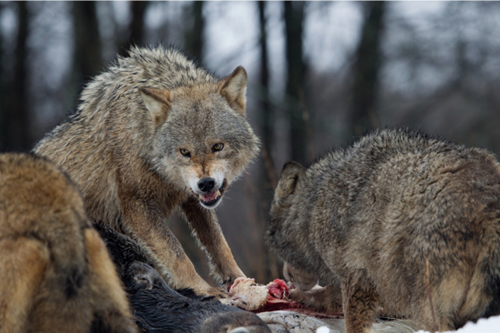 The two depredation bills that Idaho Farm Bureau has been supporting are heading to the Senate. H592 is the bill that creates $225,000 in funds for prevention and compensation of losses due to grizzly bears and wolves. It passed the House with a 56-12-2 vote. H612 opens the Wolf Depredation Control Board statute to compensate producers who have high numbers of missing livestock in wolf depredation areas. It passed the House with a 67-0-3 vote. The process now starts over on the Senate side where Senator Van Burtenshaw will carry H592 and Senator Mark Harris will carry H612. We appreciate the efforts of Farm Bureau members in contacting legislators to encourage passage of these bills! We ask that you continue those efforts as your local senators now consider these bills. IFBF supports both H592 and H612.
The two depredation bills that Idaho Farm Bureau has been supporting are heading to the Senate. H592 is the bill that creates $225,000 in funds for prevention and compensation of losses due to grizzly bears and wolves. It passed the House with a 56-12-2 vote. H612 opens the Wolf Depredation Control Board statute to compensate producers who have high numbers of missing livestock in wolf depredation areas. It passed the House with a 67-0-3 vote. The process now starts over on the Senate side where Senator Van Burtenshaw will carry H592 and Senator Mark Harris will carry H612. We appreciate the efforts of Farm Bureau members in contacting legislators to encourage passage of these bills! We ask that you continue those efforts as your local senators now consider these bills. IFBF supports both H592 and H612.
Supermajority Protection Remains, For Now
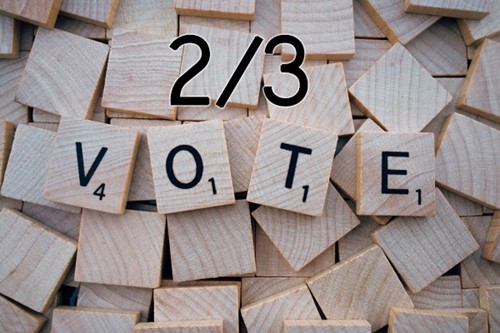 This week, HJR2 was withdrawn from the House floor for potential amendments. HJR2 proposed to amend the Idaho Constitution to reduce the supermajority vote required to pass bonds from 66 2/3% to 55% in even numbered years when there are statewide elections.
This week, HJR2 was withdrawn from the House floor for potential amendments. HJR2 proposed to amend the Idaho Constitution to reduce the supermajority vote required to pass bonds from 66 2/3% to 55% in even numbered years when there are statewide elections.
HJR2 was run primarily to make it easier to bond for school facility construction, but the reduced voting threshold would also apply to bonds run by cities, counties, or other local government jurisdictions.
Curiously, HJR2 was rushed through the process. After introduction on February 22, it received a hearing in the House Education Committee just four days later on Monday, February 26. It was approved by a majority of the committee despite testimony in opposition by the Farm Bureau. Then, one day after it reached the House floor, it was pulled for possible amendment. The only visible supporters of HJR2 were numerous educational organizations and employees.
Committee members voting to approve HJR2 included: Chairman Julie Yamamoto (R-Caldwell), Rep Lori McCann (R - Lewiston), Rep Lance Clow (R-Twin Falls), Rep Dan Garner (R-Clifton), Rep Greg Lanting (R-Twin Falls), Rep Jack Nelson (R-Jerome), Rep Mark Sauter (R-Sandpoint), Rep Steve Berch (D-Boise), Rep Sonia Galaviz (D-Boise) and Rep Chris Mathias (D-Boise).
IFBF is working with the sponsor of HJR2, Rep Rod Furniss (R-Rigby), to determine what amendments, if any, are being proposed. It is possible that HJR2 was moved from the floor simply to avoid an adverse vote by an embarrassing margin as it is clear that there are not enough votes for it to pass the House.
IFBF will be keeping a close eye on this situation as it develops and will alert members if it surfaces again. Thank you to all the members who took the time to contact their legislators to ask them to vote NO on HJR2. IFBF opposes HJR2.
State Grazing Permit Bill Advance
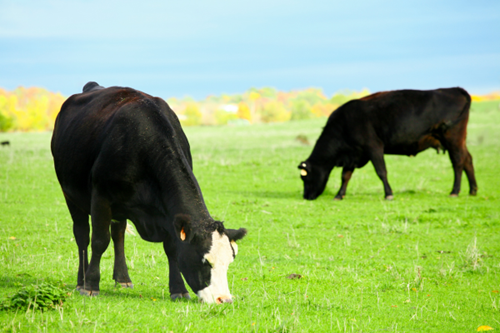 This week, S1243 was approved in the House Resources and Conservation Committee by a nearly unanimous vote. It is now awaiting a vote on the House floor, prior to being sent to Governor Little for his signature.
This week, S1243 was approved in the House Resources and Conservation Committee by a nearly unanimous vote. It is now awaiting a vote on the House floor, prior to being sent to Governor Little for his signature.
The right to renew a federal grazing permit, which is called the federal grazing preference right, is recognized in Idaho Code as a property right. However, in the past, that property right is no longer recognized by the state, and the rancher’s asset is lost following an exchange.
S1243 provides a mechanism for the Idaho Department of Lands to continue to recognize that legally recognized property right that exists on federally managed lands after the state exchanges land with the federal government. Exchanges do not happen often, but when they do, there can be significant consequences for the ranchers who have grazed on the former federal lands for generations.
Currently, after the state receives land from the federal government, they allow the former federal grazing permittee the first state grazing lease on the land. S1243 provides the opportunity for that rancher to convert the grazing lease into a state grazing permit. The permit will have all the same terms and conditions as a state grazing lease, including the same lease payment, the only difference is the permit will allow the rancher to renew the permit at the end of the lease, just like a federal grazing permit, as long as he complies with the terms and conditions.
S1243 protects existing property rights for Idaho ranchers as supported in IFBF policy #45.8. IFBF supports S1243.
Extending State Grazing Leases
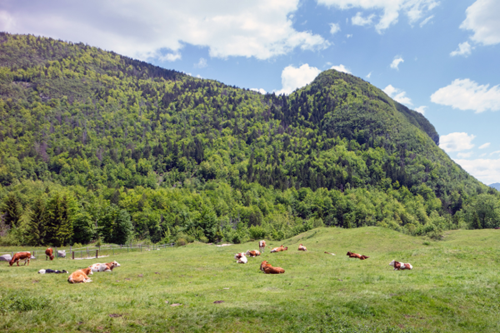 S1342 sets the maximum term for state grazing leases at 40 years. Currently, state grazing leases are limited to 20 years, while many are only 10 years. S1342 would provide additional flexibility for the Idaho Department of Lands to provide for longer-term grazing leases at their discretion.
S1342 sets the maximum term for state grazing leases at 40 years. Currently, state grazing leases are limited to 20 years, while many are only 10 years. S1342 would provide additional flexibility for the Idaho Department of Lands to provide for longer-term grazing leases at their discretion.
This idea was actually floated by IDL since many leases have not received competitive bids historically, and the chances that they will in the future are quite slim. Therefore, to reduce overhead expenses in the cost of administering the renewal of leases, it was determined that it would be helpful to the state to extend the lease term on many state grazing leases.
Currently, Commercial leases of state land for other purposes can be made for up to 49 years, so a 40-year term for grazing leases would not be unusual. The discretion would still lie with IDL, but it is likely those leases on scattered sections, particularly those that lie wholly within federal lands, or wholly within private lands, would be moved to a longer lease term when they come up for renewal.
S1342 has been approved by the Senate Resources & Environment Committee and is now awaiting a vote from the entire Senate prior to moving to the House for Consideration. The Idaho Cattle Association and Senator Mark Harris (R-Soda Springs) are the sponsors of S1342. IFBF supports S1342.
No Public Aid for Undocumented Individuals Fails in Committee
 H615, introduced by Rep Vito Barbieri (R-Dalton Gardens), failed in the House Committee on Health and Welfare this week on a 7-5 vote to hold in committee. The bill required that verification of lawful presence must be established to receive certain public benefits. Those included:
H615, introduced by Rep Vito Barbieri (R-Dalton Gardens), failed in the House Committee on Health and Welfare this week on a 7-5 vote to hold in committee. The bill required that verification of lawful presence must be established to receive certain public benefits. Those included:
- Immunizations;
- soup kitchens, crisis counseling, and intervention facilities;
- prenatal care; postnatal not exceeding twelve months; and food assistance for dependent children under eighteen.
It did not exclude emergency medical services for any individual. Hesitation for passage arose in committee when discussing prevention of prenatal care for babies that were likely going to be born in the United States, thus having an ‘anchor baby’. Other concerns were preventing food access and immunizations, which, in the opinion of the committee, posed a public health risk.
It's important to note this bill would not have prevented any individual from going to a private health care facility or ministry to receive such aid. This bill would have only applied to publicly funded locations, paid for by taxpayer funds for legally present individuals. IFBF supported H615. American Farm Bureau Policy states, “We support legislation to strengthen the present immigration and naturalization laws of the United States and to especially address the following subjects: … undocumented or unauthorized persons should not be eligible for any of our social welfare programs, including housing, fuel, education and health benefits.”
HJM010 Introduced
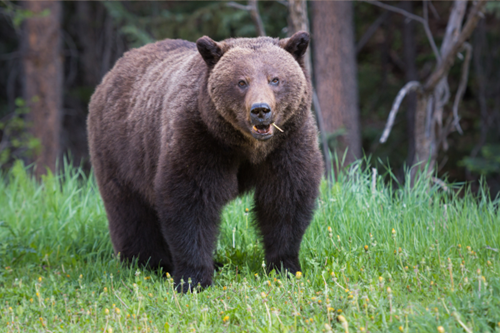 On Thursday, Representative Judy Boyle (R-Midvale) introduced HJM010 which expresses the opposition of the legislature to any type of grizzly bear reintroduction into the state. If you recall, the U.S. Fish and Wildlife Service (FWS) announced their intention to prepare an environmental impact statement (EIS) to consider the implications of introducing bears into the Bitterroot Ecosystem, a geographical area in Idaho and Montana, as an experimental population. In 2023, a district court in Montana ruled FWS delayed introducing grizzly bears into the ecosystem and a new EIS was required to determine how introduction would impact surrounding areas. Grizzly bears have been documented in this area but insufficient numbers to meet recovery goals. The memorial urges a “no action” decision, which means FWS would not direct any bears to that area. IFBF Policy 68 states “We oppose the reintroduction of grizzly bears into any area of the State of Idaho”. IFBF supports HJM010.
On Thursday, Representative Judy Boyle (R-Midvale) introduced HJM010 which expresses the opposition of the legislature to any type of grizzly bear reintroduction into the state. If you recall, the U.S. Fish and Wildlife Service (FWS) announced their intention to prepare an environmental impact statement (EIS) to consider the implications of introducing bears into the Bitterroot Ecosystem, a geographical area in Idaho and Montana, as an experimental population. In 2023, a district court in Montana ruled FWS delayed introducing grizzly bears into the ecosystem and a new EIS was required to determine how introduction would impact surrounding areas. Grizzly bears have been documented in this area but insufficient numbers to meet recovery goals. The memorial urges a “no action” decision, which means FWS would not direct any bears to that area. IFBF Policy 68 states “We oppose the reintroduction of grizzly bears into any area of the State of Idaho”. IFBF supports HJM010.
Agricultural Land Protection Bill Advances
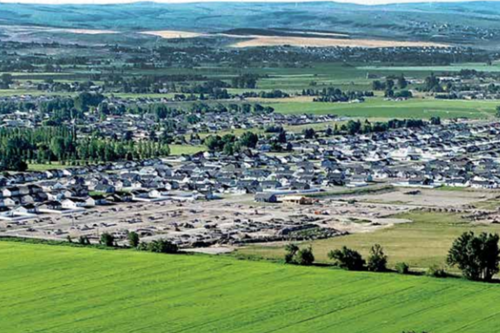 On Wednesday, the House Local Government Committee held a lengthy hearing to consider H608 regarding Agricultural Protection Areas. The room was full of farmers, ranchers, seed company owners, agricultural organizations, county officials, urban planners, and highway district representatives, with many more individuals participating in the meeting virtually.
On Wednesday, the House Local Government Committee held a lengthy hearing to consider H608 regarding Agricultural Protection Areas. The room was full of farmers, ranchers, seed company owners, agricultural organizations, county officials, urban planners, and highway district representatives, with many more individuals participating in the meeting virtually.
Numerous testimonies were presented in favor of the bill, although certain objections were raised by road and highway officials regarding the limitation on the use of eminent domain authority.
The committee asked many questions about how the proposed Agricultural Protection Area process would work, how it would protect production agriculture, how it would benefit landowners and aid in county planning. The restriction of eminent domain authority in the bill received the most attention and discussion, with some members of the committee wanting to send the bill to the amending order to remove that provision. Fortunately, after significant deliberation, the committee passed the bill on a 15-1 vote.
Since the introduction of H608, we have been asked why highway districts or roadways were not carved out of the eminent domain restrictions. Our answer is simple; this would remove a significant portion of the benefits an APA can offer to a landowner. It is important to remember that it is the board of county commissioners that approves these APA designations. The application goes through an extensive review process that is open to the public and where public testimony is available. If there is reason for an APA not to be approved due to roadway needs, that will certainly be aired and considered in the review and recommendation process. However, once an APA is approved by the board of county commissioners, farmland should be respected, and the right of eminent domain is off the table except for those uses that are called out in state constitution. The restrictions of use of eminent domain serves as an incentive to landowner when considering APA option. Without it, there is far less incentive for landowners to consider an APA designation for their land.
Farm Bureau thanks the members of the House Local Government Committee for their careful consideration of H608 and are appreciative of the strong vote of support. We look forward to seeing the bill advance through the next steps of the legislative process and would encourage our members to ask their legislators to support the bill.
IFBF Policy #146 supports legislation to protect agriculture land through voluntary agreements and programs based on incentives. IFBF supports H608.
*For a more detailed description of H608, see last week’s issue of Capitol Reflections.
Immigration Joint Memorials
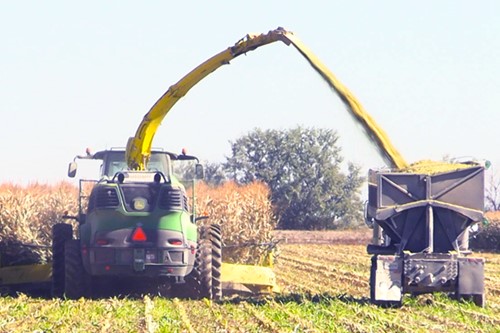 Two different joint memorials were recently introduced on the topics of immigration and border security. A joint memorial is typically addressed to a branch, department, or individual within the federal government requesting an action that is within their jurisdiction. It is acted upon in the same way a regular bill would be and must pass by both the state House and Senate; however, it is not signed by the Governor.
Two different joint memorials were recently introduced on the topics of immigration and border security. A joint memorial is typically addressed to a branch, department, or individual within the federal government requesting an action that is within their jurisdiction. It is acted upon in the same way a regular bill would be and must pass by both the state House and Senate; however, it is not signed by the Governor.
SJM102 states that Congress and the President have failed in their duties to implement an immigration policy that keeps American safe while meeting labor needs. It explicitly calls for tighter border security, an effective guest worker program that accounts for year-round agriculture and other industries and prohibits amnesty to those currently in the country without legal status. Idaho Farm Bureau believes this approach addresses the current conflicts occurring at the southern border while accounting for the labor needs of Idaho.
This memorial passed out of the Senate on a 30-4 vote and will soon be heard in the House Agricultural Affairs committee. SJM102 addresses many of the priority issues Farm Bureau has been advocating for back in Washington DC for many years. IFBF supports SJM102.
On the other hand, HJM008 as written is a memorial that we cannot support. This memorial also addresses the real issue of border security and the failure of the Biden Administration to enforce current immigration laws, and the need for Congress to pass more meaningful immigration laws. We don’t take issue with these aspects of the memorial, and we also agree with the frustration with the current administration for their failure to address the crisis on the southern border. However, there are two aspects of the memorial that we take issue with.
The clause at the bottom of page one of the memorial states that “the thirst for cheap immigrant labor in Idaho has created a conduit for human trafficking and drugs like fentanyl and other related drugs that kill 190 souls in America per day.” This statement completely misrepresents our position and our requests of Congress and the White House. Idaho Farm Bureau strongly opposes the notion that labor shortage needs, filled by undocumented laborers in the state, is correlated to a ‘thirst for cheap labor’ or that agriculture is contributing to human and drug trafficking. This statement villainizes Idaho agriculture and puts the blame on industry rather than on Congress. All businesses want two things: labor needs filled and the ability to affordably pay those laborers.
It should not be the responsibility of American employers, including farmers and ranchers, to have to enforce federal immigration law simply because the federal government hasn’t. Our members that employ workers must fill-out the required federal documentation for employment with the identification documents provided them by the individual. They can’t challenge the legitimacy of the identification documents without running the risk of lawsuit for unlawfully profiling the individual. Farmers and ranchers simply have a job that needs to be filled, and they offer it to those who are able and willing to fill it.
The second aspect that we take issue with is the statement on the second page that only after President Biden has been impeached and H.R.2 and the Secure Border Act of 2023 have passed, then Congress can ‘contemplate’ a mechanism for processing immigrants into the country. This is unacceptable for our members as many of them are facing labor challenges now. We are confident that these issues can be addressed simultaneously. The White House needs to enforce the law, and Congress needs to address ag. labor reform. Both are important and deserve immediate attention.
Farm Bureau has extensive policy regarding immigration reform, all found in AFBF Policy #135. For the reasons listed above, IFBF supports SJM102 and opposes HJM008 as written.
------------------------------------------------------------------------------------
Resources Available to Follow During Session:
Legislative Website Homepage: HERE
2024 Legislative Session Bill Center: HERE
List of Senate Committee Assignments: HERE
List of House Committee Assignments: HERE
Current Senate Committee Agendas: HERE
Current House Committee Agendas: HERE
Watch Committee Meetings and Floor Sessions Live: HERE
Governor’s Bill Action and Legislative Communications: HERE
Still can't find what you are looking for? Find by topic:
- Achievement Award (YF&R)
- Actions Alerts
- Advocacy
- Ag Ambassadors
- American Farm Bureau
- American Farm Bureau Policy Book
- Archive Photos
- Articles
- Board of Directors
- Calendar - State/District
- Calendar - County
- Capitol Reflections
- Collegiate Chapters
- Committee Application Form
- Commodities
- Convention Annual
- County Presidents & Board Information
- County Resource Page
- Delegate Form
- Discount Programs
- Discussion Meet
- Discussion Meet - High School
- Education Programs
- Events
- Excellence Award (YF&R)
- Expense Voucher
- Flickr
- Gem State Producer
- High School Discussion Meet
- High School Speech Contest
- Hope in Idaho Ag
- House of Delegates Credentials Form
- IFBF Board of Directors
- IFBF Policy Book
- IFBF Staff
- Insurance
- Legislative Action Program
- Legislative Issues
- Library
- MAC Trailer
- Magazines
- Map My Benefits
- Member Benefits
- Member Discount
- Membership Application
- Mission Statement
- Moving Agriculture to the Classroom
- Newsletter Sign up
- News Releases
- News Room
- Open Range Law
